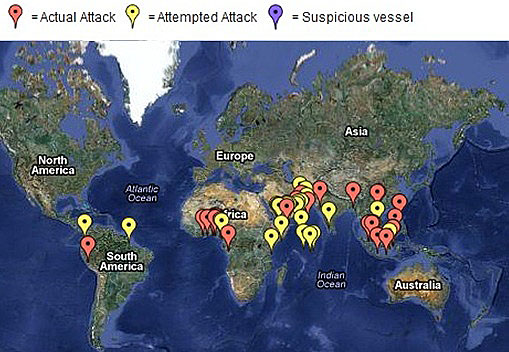28th February 2012
Piracy and Ukraine: why the London conference on Somalia matters
Guest blog by Olena Sadovnik, Media and Digital Comms Officer, British Embassy Kyiv
 Most of our knowledge about pirates comes from adventure books and movies featuring characters like Long John Silver in Treasure Island or Sinbad the Sailor in Persian folklore. As well as pirate legends, however, piracy itself, unfortunately, has survived over the centuries. In the past few decades it has emerged as a serious threat to international peace and security.
Most of our knowledge about pirates comes from adventure books and movies featuring characters like Long John Silver in Treasure Island or Sinbad the Sailor in Persian folklore. As well as pirate legends, however, piracy itself, unfortunately, has survived over the centuries. In the past few decades it has emerged as a serious threat to international peace and security.
What has the international community been doing about this? A legal framework has been put in place; state commitments have been established; and international forces have been deployed. But this has not stopped piracy from continuing to be a major problem, particularly in the Horn of Africa. That is one reason why the British Government last week called the London conference on Somalia. The UK’s primary objective in Somalia is to seek a lasting political solution that will bring peace and security to the country. The conference focused on the underlying causes of instability in Somalia, as well as the symptoms – of which piracy is one. Participants of the conference agreed to enhance coordination on illegal financial flows and to coordinate intelligence gathering and investigations. They also welcomed the establishment of a Regional Anti-Piracy Prosecutions Intelligence Coordination Centre in the Seychelles which the UK would fund, as announced earlier by British Foreign Secretary William Hague.
The London Conference matters to Ukraine. Despite its distance from pirate attacks (see map below), Ukraine has experienced the scourge of piracy first hand. 42 ships with 187 Ukrainian citizens on board were hijacked or attacked between 2008 and 2012, according to the Ministry of Foreign Affairs and Foreign Intelligence Service of Ukraine. More than 50,000 Ukrainian citizens serve on ships worldwide. All this means that successful international action to counter piracy will be a relief to many Ukrainian families, who would rather learn about piracy from history books than learning about loved ones taken hostage or worse.

These little-known facts about Somali piracy help clear the confusion:
(i) British insurance industry is a hidden cause of the growth of Somali piracy. Read article by a former UK MP Matthew Parris in The Times ‘The piracy racket begins here in the City’. Matthew Paris says, “Piracy is funded by pirates and insurance companies. A whole network of agents and middlemen has sprung up and is used by insurers and shippers as a semi-formalised line of communication with the Somali pirates. Many careers and many fortunes- all perfectly legal- are now founded upon this racket.”
“The greater part of maritime insurance is British, but very few British merchant seamen will ever be affected. You may speculate that the risk of the occasional loss of a few Filipino crewmen is preferred to a substantial hike in the cost of every voyage and the danger that maritime insurance would be driven away from the City of London,” he says.
(ii) Most pirate negotiators based in London.
(iii) Somali pirates helped by intelligence gathered in London, read here: http://www.telegraph.co.uk/news/worldnews/piracy/5309692/Somali-pirates-helped-by-intelligence-gathered-in-London.html